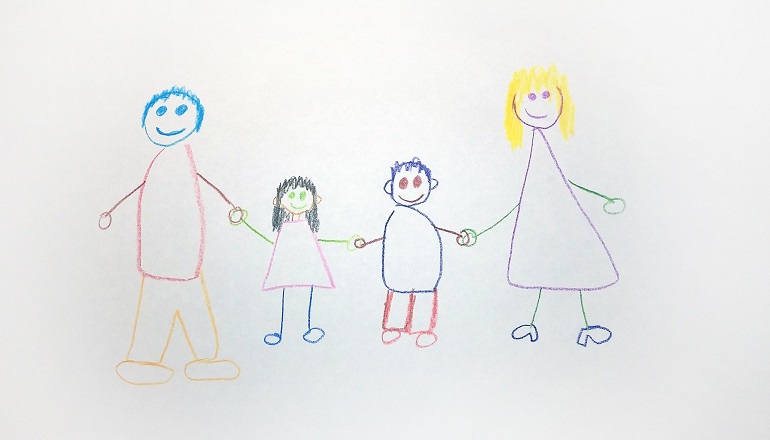There’s this poem I’m supposed to love. I first read it when we adopted our oldest son: Not flesh of my flesh nor bone of my bone/But still miraculously my own./Never forget, for a single minute,/You didn’t grow under my heart, but in it.
I’ll admit that at first I was so choked up with gratitude that the poem seemed to describe what a mother feels when she adopts a child. How little I knew then, of love. And of blood. And of loyalty.
Robert had been in the world for only 48 hours, but it felt as though we had scoured the world for our entire lives to find him. What was miraculous was the shock of recognition I experienced when I met him. I could not have imagined that I would feel the same shock three more times: when I gave birth to one of his brothers, adopted another, and helped deliver his baby sister the day before I adopted her. Our kinship could not have been predicted, but I knew that it was for my life and beyond, that all that I am and all that I had would be part of this child’s inheritance.
Then, after an incident so egregious it made me want to blow up law libraries, I ripped the poem out of my son’s baby book. I couldn’t bear having my family record seem to support the notion that it is miraculous to love as your own one who is not flesh of your flesh and bone of your bone.
It isn’t just the implied insult—that a child adopted is somehow a booby prize. It’s that I honestly believe my children are my flesh and blood—that their genetic heritage and mine became a braided strand the day we were joined, changing my family’s gene pool forever (and, to be honest, improving it).
It’s not that I pretend away the physical and emotional legacies of inheritance. I find it appealing that, for centuries, people in my family have had noses shaped just like my son Marty’s. But it’s equally appealing to think that someday I may have gray-eyed grandchildren because of the new family strain my eldest son brought with him. My son Dan may have got his thick hair from his birth mother—but he got his sense of humor from me.
I don’t like being told that my children are special or lucky. (They are both special and lucky, but it has little to do with me.) I know people mean well when they call my children chosen, but it always sounds as if I ordered them from a catalog.
Every couple who has had children both ways hears the inevitable inquiry: “Which ones are adopted and which ones are yours?” Hipper folk say adopted and biological, as if these were chronic conditions instead of ways of getting into a particular family, and as if the ones who aren’t biological are the result of some kind of experiment.
Scientists debate nature and nurture, as if each of us were not a product of both. When a child born into a family acts wacky, his behavior is described in terms of genetics—the legacy of crazy Uncle Harold. But if a child is adopted, the loss of the birth family is always presumed to be key. I remember stifling laughter when a school psychologist tried to connect my fourth-grade son’s drawings of me with Dracula fangs to his adoption-related rage and grief. “You don’t understand,” he explained. “Right now, I just don’t like my mom personally. It has nothing to do with adoption.”
Well, I take that little poem personally. It begins with an unkindness wrapped in sugar coating and ends by advising the child to “Never forget.”
But the fact is, you do—I often do, and so do those close to me.
Indeed. The little ones huddle in the beds of the big ones during thunderstorms. And the big ones tell the little ones to look at the spider on the ceiling in order to swipe the last french fry. If before birth we hadn’t mixed our cells together into the stew that is us, we have certainly done so since then. We bicker; we take sides; we sing Motown songs and cheat at blackjack. We cherish each other, and we take each other callously for granted. We act the way families do.



